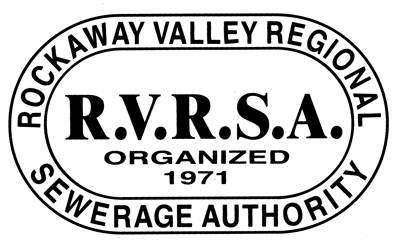RVRSA Questions
IPP Questions
Safety Questions
I am looking to connect to the sewer system, what are the proper steps needed to connect?
Please see our Service Rules for more details or contact our offices.
I am having a problem with my sewer system (clog, no service) what steps do I take in order to correct the problem?
Contact your local sewer department in the town that you reside in. Please see the “Related Links” section for each municipality served by RVRSA to better assist you.
When do I need an Ownership Disclosure Statement?
You will need an Ownership Disclosure Statement if you are requesting an approval from the Board of the RVRSA for: Treatment Works Approval (TWA) endorsement request, WQM-003 for sewer main extensions; or For an Industrial Sewer Connection Permit (ISCP) under the...
How many gallons per day are treated?
RVRSA is designed to treat 12 million gallons per day (MGD) of wastewater. Currently RVRSA successfully treats an average of 10 – 11 million gallons per day (MGD).
What towns do you serve?
RVRSA services nine towns: Town of Boonton Township of Boonton Township of Denville Borough of Rockaway Township of Rockaway Town of Dover Township of Randolph Victory Gardens, and Borough of Wharton; one customer: Mine Hill; and one federal facility: Picatinny...
What type of sewage do you treat?
RVRSA treats a variety of wastes from households, to business and industrial facilities, to commercial establishments. These wastes are considered sanitary wastes. Storm water runoff from streets, land and roofs of buildings are collected separately in storm sewers....
What does it cost to treat sewage (cost per thousand gallons)?
The cost to treat wastewater depends on the type and the amount of wastewater. RVRSA initially charges each town, individually, for the amount of gallonage used and treated by the use of meter readings. There are meters (meter chambers) located throughout the RVRSA...
How many industrial users are in the RVRSA Service area?
RVRSA currently regulates 20 industries. Three (3) of which are Categorical (have federal regulations), 5 Significant (discharge gallonage of over 100,000 gallons per day) and 12 Users of Concern.
Are certain household chemicals considered an Industrial Waste?
No, certain household chemicals are not considered an industrial waste, but they can be considered harmful to the sewer system and treatment plant. Household chemicals such as: used motor oil, antifreeze, gasoline, paints and stains, photo chemicals, pool chemicals,...
How does RVRSA determine who is an Industrial User?
Industries are asked to fill out a standard “Industrial Survey Questionnaire”. From the information gathered on this form we can determine whether or not this facility will need to be permitted in order to discharge into the RVRSA sewer system. If the facility is...
How are Industrial Users monitored and charged?
Industrial Users are permitted by an Industrial Sewer Connection Permit. Depending on the size, wastewater discharge amount and type of production at the facility determines how the industry is regulated (Categorical Industrial User (CIU), Significant Industrial User...
Why are Industries regulated in the RVRSA Service Area?
Industries are regulated as a requirement of federal and state environmental laws and regulations (an example, “The Clean Water Act”). It is important to regulated industries since the RVRSA treatment plant is designed to treat DOMESTIC sewerage only, not INDUSTRIAL....
Where can I obtain a copy of the list of chemicals used at the facility?
The RVRSA files a Right-To-Know survey annually with the appropriate state and county agencies, as well as with the local Emergency Management unit.
What happens in the case of spill?
These two major chemicals are stored in OSHA approved storage tanks surrounded by containment walls. These containment walls are calculated to be at the height necessary to contain the amount of liquid in the tanks.
Are any of the chemical used harmful to my family?
No, the chemicals are injected right into the water so therefore none of the chemicals used will come in contact with the air or soil.
What types of chemicals are used at the facility?
We use a 15% Sodium Hypochlorite solution to disinfect the wastewater, similar to what one would use to prepare a swimming pool for the season. We also use Sodium Bisulfite, after the Sodium Hypochlorite to bring the chlorination level down to an acceptable level for...
